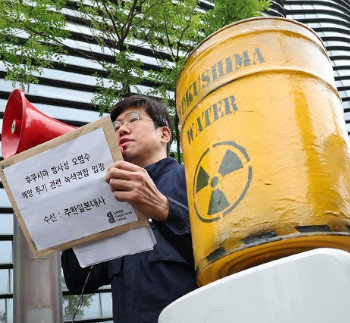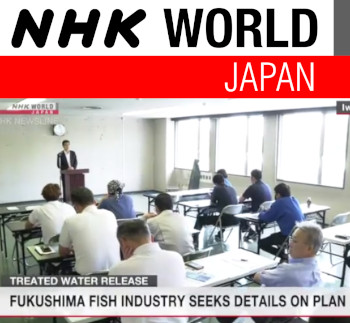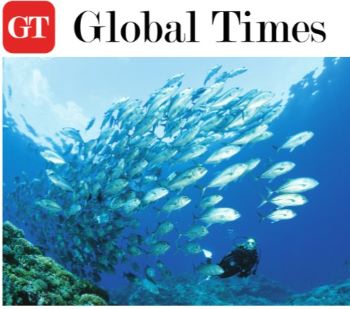|

Image: The Korea Times / FIS
Japan pressures Korea to lift import ban on Fukushima seafood
 SOUTH KOREA
SOUTH KOREA
Monday, July 03, 2023, 01:00 (GMT + 9)
Korea is facing growing pressure from Japan to resume imports of seafood from Fukushima, as Tokyo pushes ahead with plans to discharge treated wastewater from the Fukushima Daiichi Nuclear Power Plant that was crippled by a tsunami in 2011.
During a press briefing on Friday, Japan's Chief Cabinet Secretary Hirokazu Matsuno said, "Japan will strongly demand (Korea and China) for an early lifting of seafood import bans by explaining that the scientific safety of all of the foods distributed domestically and internationally are being ensured through our existing safety measures."

Photo: The Korea Times
The Korean government has been reassuring the public that the import ban will remain in place regardless of Japan's wastewater release. But a rapid thaw in bilateral relations has increased concerns that Seoul might scrap the ban.
.jpg) International Atomic Energy Agency (IAEA) Director General Rafael Grossi will arrive in Tokyo on Tuesday to deliver his agency's final report on its years-long safety review of the wastewater discharge plan. The IAEA is widely expected to give Japan a thumbs up, considering that its previous reports found the country's measurement of the treated water to be "accurate and precise." International Atomic Energy Agency (IAEA) Director General Rafael Grossi will arrive in Tokyo on Tuesday to deliver his agency's final report on its years-long safety review of the wastewater discharge plan. The IAEA is widely expected to give Japan a thumbs up, considering that its previous reports found the country's measurement of the treated water to be "accurate and precise."
The Japanese government will then announce the exact date of when it will begin releasing the tons of treated ― but still slightly radioactive ― water into the Pacific Ocean, a process which will be carried out for the next three to four decades.
Since 2013, Korea has maintained a comprehensive import ban on fisheries products from Fukushima Prefecture and seven other neighboring regions that were affected by the nuclear disaster due to concerns over radioactive contamination.
The import ban on Japanese seafood is one of the few remaining issues in relations between Seoul and Tokyo as the incumbent Yoon Suk Yeol administration has been pushing to mend ties with the neighboring country.

Photo: The Korea Times
In 2015, Japan lodged an official protest at the World Trade Organization (WTO) against Korea's import ban and additional testing requirements on its seafood products. The dispute settlement body initially ruled in favor of Tokyo in 2018. But the following year, the WTO's appellate body overturned the decision and sided with Seoul.
 But now, in light of a series of fence-mending gestures from Korea, Japan is apparently expecting the Yoon administration to ease its restrictions on Japanese seafood products. But now, in light of a series of fence-mending gestures from Korea, Japan is apparently expecting the Yoon administration to ease its restrictions on Japanese seafood products.
Also, there is mounting speculation that the IAEA chief will visit Korea following his trip to Tokyo, to explain his organization's position on the water discharge plan. The Korean government has yet to confirm Grossi's visit. But if the trip comes after the IAEA gives the final greenlight for the wastewater release, the Korean public will not welcome his meeting with Korean officials.
Gallup Korea surveyed 1,007 adults from June 27 to 29 and found that 78 percent of the respondents were worried about the possible ocean and seafood contamination that may be caused by the water discharge.
Meanwhile, according to Japanese media outlets, the European Union (EU) is considering fully removing its import restrictions on Japanese marine and agricultural products, with detailed announcements to be made possibly during Japanese Prime Minister Fumio Kishida's summit with EU leaders in mid-July.
Author: Lee Hyo-jin | The Korea Times

Notas relacionadas:





[email protected]
www.seafood.media
|



